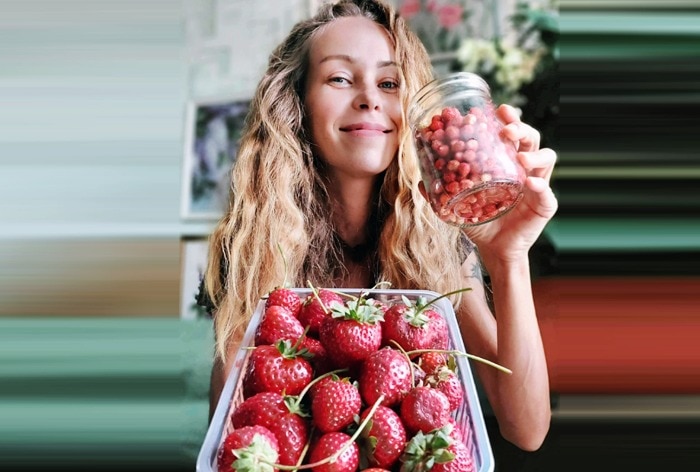Raw vegan food influencer Zhanna Samsonova passed away few days ago and since then, veganism has been a hot topic of debate. Is it really healthy? How much is too much vegan?

Health trends keep changing and evolving. while COVID-19 did induce a more sedentary lifestyle, it has made many of us, more health conscious as well. There are several diet fads like Mediterranean, MIND diet, vegan diet etc. While some remain a fad and fade away with time, some are here to stay. Veganism is a growing trend that is gaining much traction worldwide. Recently, there has been a lot of debate around the same after a vegan influencer Zhanna Samsonova passed away at the age of 39 years.
Samsonova was a vegan raw food influencer who has her social media documenting her diet regime. According to a report by the Independent, her friends and family were quoted saying by Newsflash that she “died of starvation and exhaustion” after subsisting exclusively on a “completely raw vegan diet” in Malaysia.
Since her demise, there are looming questions about the unhealthy-healthy ratio of veganism. Is it all about starving? How healthy or unhealthy it is?
What Happened to Zhanna D’art ?
While the mother of the Russian influencer said that her daughter died due to “cholera-like infection,”, the real cause of death is not yet revealed. “A few months ago, in Sri Lanka, she already looked exhausted, with swollen legs oozing lymph,” one friend told Newsflash. “They sent her home to seek treatment. However, she ran away again. When I saw her in Phuket, I was horrified.”
Her friend added, “I lived one floor above her and every day I feared finding her lifeless body in the morning. I convinced her to seek treatment, but she didn’t make it.”
How Unhealthy is Vegan Diet?
A vegan diet is essentially a plant-based diet. Having a full-blown vegan diet is never recommended because there has to be a balance of both micronutrients and macronutrients. Vegan food has its own restrictions in terms of the content of protein, healthy fat, and carbohydrate. In order to comprehend how healthy or unhealthy is vegan diet, India.com reached out to experts. PratikshaKadam, Consultant, Dietitian at Kokilaben Dhirubhai Ambani Hospital, Navi Mumbai, said that “A well-planned vegan diet can be a healthy and sustainable choice for many individuals, including adults, children, and adolescents. However, it requires careful attention to ensure all essential nutrients are adequately obtained. If not properly planned, a vegan diet may lead to nutrient deficiencies and health issues. It’s crucial to consult with a registered dietitian or healthcare professional before adopting a vegan diet, especially if you have specific health conditions or dietary concerns.”
Side Effects of Vegan Diet
- Nutrient Deficiencies: Vegan diets can be lower in certain nutrients, including vitamin B12, iron, calcium, omega-3 fatty acids, zinc, and vitamin D. These nutrients are typically abundant in animal-based foods, so vegans need to obtain them from plant-based sources or supplements.
- Vitamin B12 Deficiency: Vitamin B12 is mainly found in animal products, and a lack of this vitamin can lead to anemia, nerve damage, and other neurological issues.
- Iron Deficiency: Plant-based sources of iron are not as readily absorbed as the iron from animal sources. Ensuring sufficient iron intake is crucial to prevent anemia. Iron-rich vegan foods include lentils, beans, tofu, and fortified cereals. Consuming vitamin C-rich foods can also enhance iron absorption.
- Vitamin D Deficiency: Vegans who don’t get enough sunlight exposure may have a risk of vitamin D deficiency. Vitamin D can also be obtained from fortified plant-based milk, fortified cereals, and supplements if necessary.
- Weight Changes: Some people may experience weight loss on a vegan diet due to reduced calorie intake, while others may gain weight if they consume high-calorie processed vegan foods.
- Digestive Issues: Increasing fiber intake significantly when transitioning to a vegan diet can cause gastrointestinal discomfort for some people, such as bloating and gas. Gradually increasing fiber intake can help the digestive system adapt.
Due to low-calorie content, these help with weight loss and have health benefits to only when consumed in a balanced fashion. It is important to change diets under the supervision of a professional to help maintain the balance of all vitamins, minerals etc.

Don’t Miss Out on the Latest Updates.
Subscribe to Our Newsletter Today!

